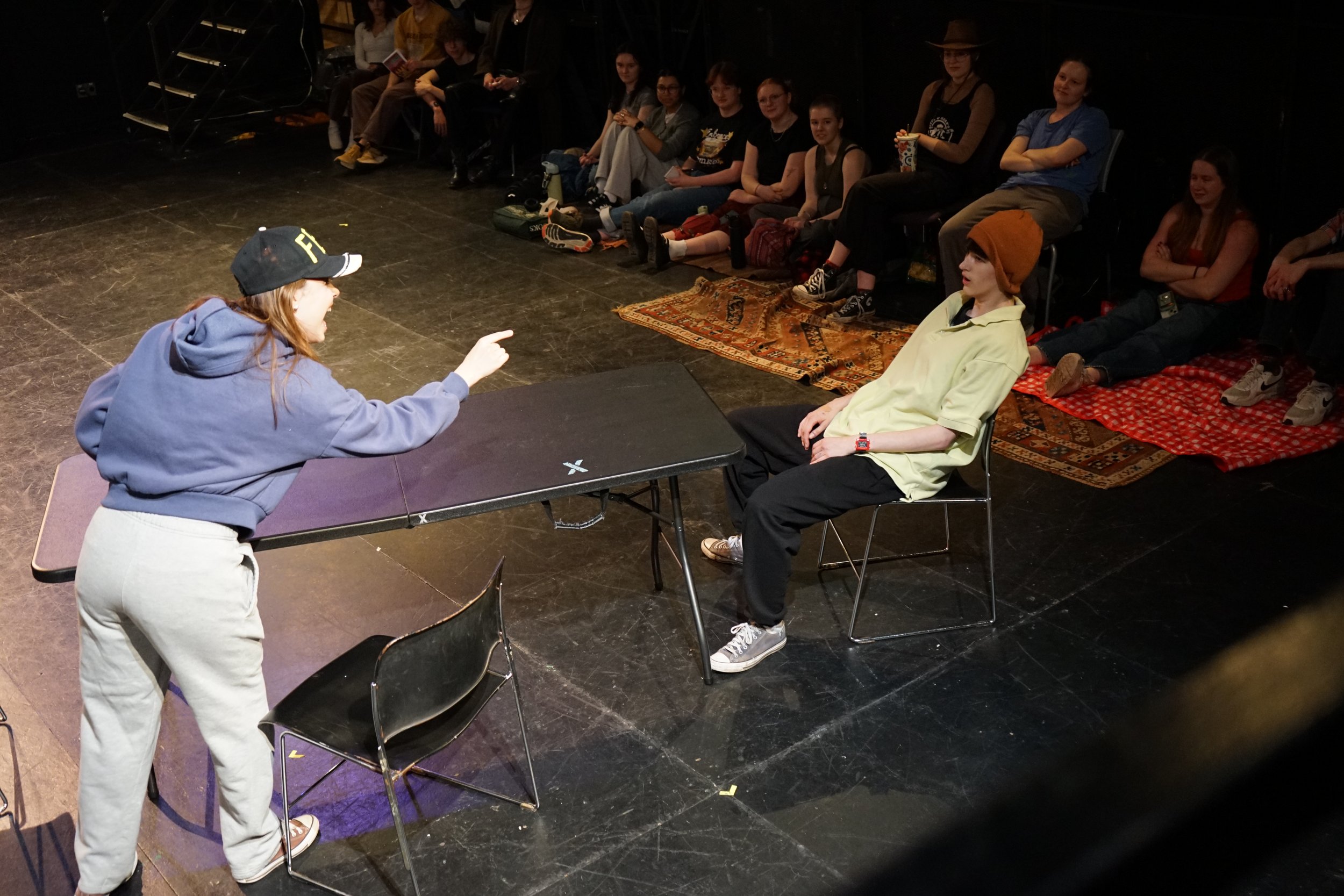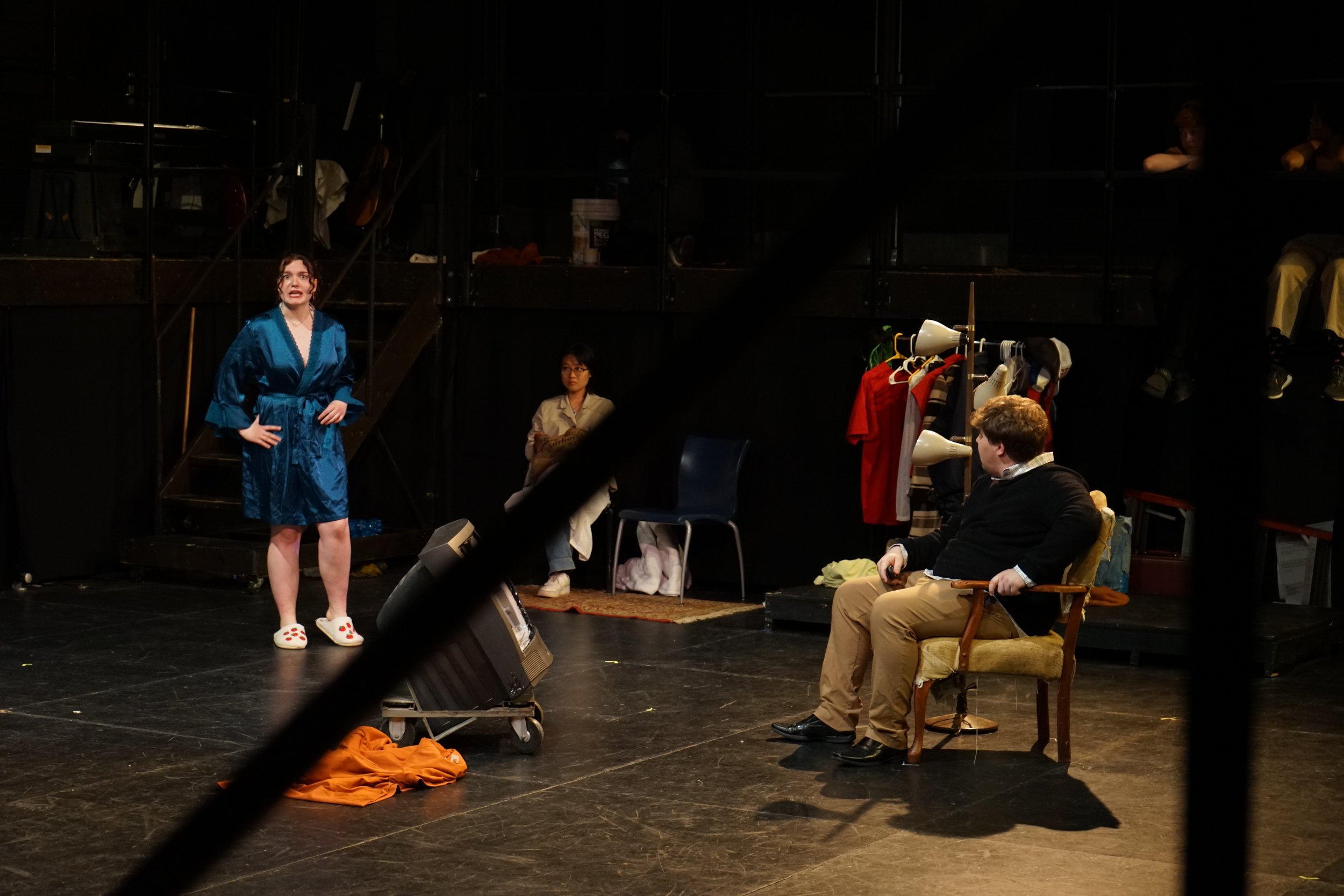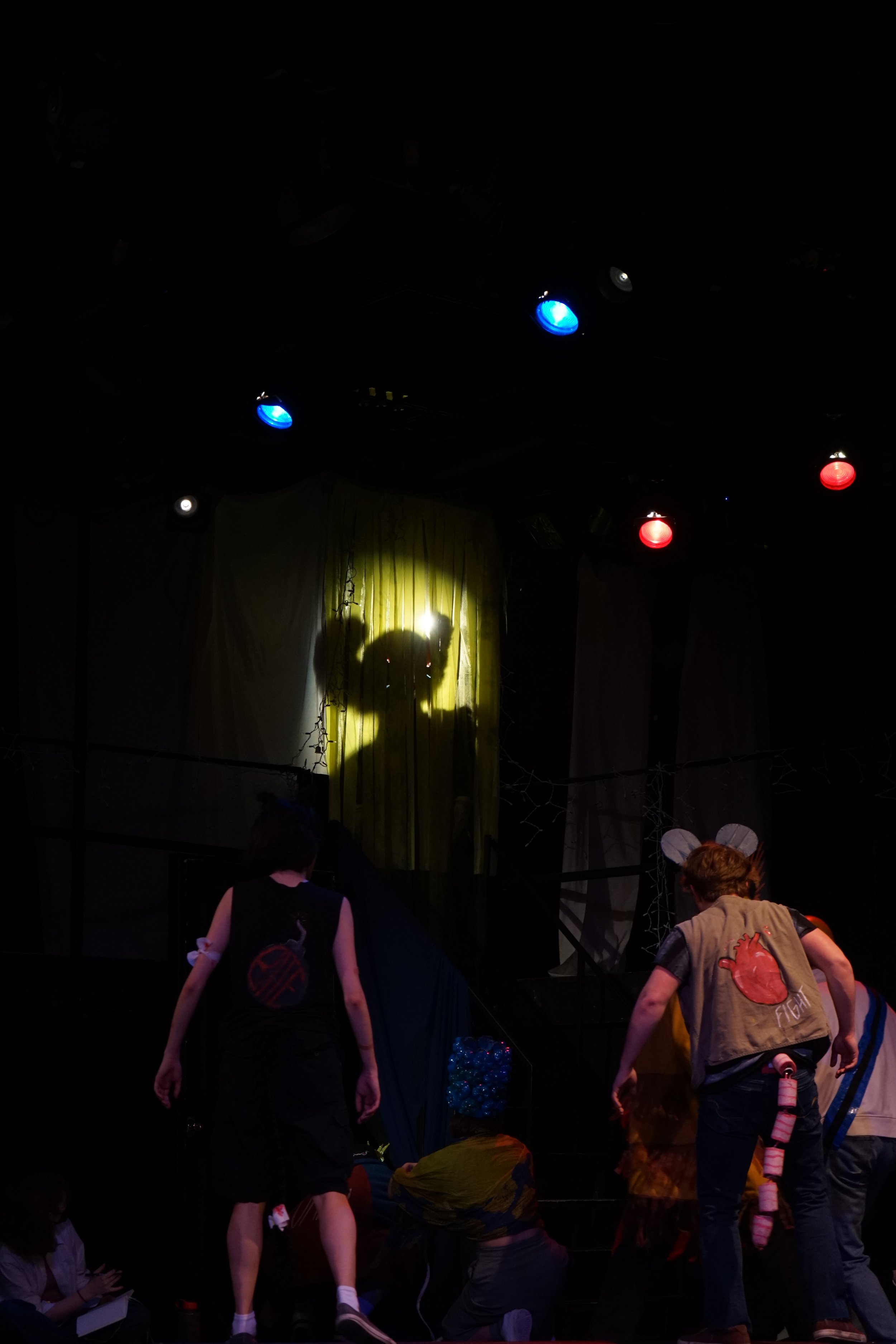Act One





Mr. Burns: a post-electric play
In January 2025, I pitched Mr. Burns: a post-electric play to the board of OPENSTAGE and the student theater community at UMN to be produced in conjunction with my honors thesis on Environmental Theater and scenic design. I had been interested in the play for many years, and was delighted when it was chosen as the semester’s production. I served as the scenic designer for the production and a co-director with my collaborator Leo Newman.
To achieve the qualities of Environmental Theater, we performed the first act in an outdoor amphitheater near Rarig Center. Acts Two and Three were performed in the Xperimental Theater with audience members dispersed throughout the split-level space. Each act had a different set up, and many spectators had to move positions between acts to accommodate the actors.
The process required me to take on responsibilities which were entirely new to me, but by learning from my peers and mentors, and finding incredible support in the people around me, the production was an overwhelming success.
By Anne Washburn, Produced by OPENSTAGE in the Nolte Xperimental Theater in Rarig Center
Initial renderings and diagrams of the scenic design
Act Two









Chart Hits
Act Two contains a medley of pop songs recognizable to our pre-apocalypse ears. I arranged the first part of the nine minute medley, transcribed for the cast by Michael Valois, our music director.
Act Three











Production Team
Directors: Danielle Croom & Leo Newman
Choreographer: Julia Jacobson
Music Director: Michael Valois
Stage Manager: Alyx Blackwell-Kinney
Scenic Design: Danielle Croom
Lighting Design: Shirley Runkel
Costume Design: Marsh Kelly and Grace Maijala
Sound Design: Phoebe West
Fight and Intimacy: Alyx Blackwell-Kinney
Costume Run Crew: Lucas Shilman
Scenic Run Crew: Nalah Kasongo
Musician: Joe Sanders
Cast
Sam/Scratchy: Gage Canavan
Colleen/Edna Krabappel: Kat Haugan
Maria/Marge: Ava Jax
Gibson/Homer: Trever Knutson
Quincy/Bart: Rachel Laws
Mr. Burns: Bella Maldonado
Matt/Itchy: Anna Sullivan
Jenny/Lisa: Kennedy Wagner
Directors’ Statements
Usually when telling someone about a play I’m working on I might explain who the main character is, but it’s a little more complicated when the main character is really the “Cape Feare” episode of The Simpsons. Over the three acts of Mr. Burns, the episode evolves from an oral history to a religious myth: after the collapse of society, the characters recount the episode to stay sane; seven years later, this oral history has become a means of subsistence in a capitalistic world; and 75 years after that, it has become a piece of religious mythology. In all three acts, the characters invariably generate community by creating theatre. Mr. Burns proposes that the ritual of creating theatre is a necessity for communal survival, even in the most catastrophic times. At first it may sound absurd to call a play about The Simpsons ritualistic, but this play requires us to reconsider our judgments of popular culture and have faith in the “Simpsons Spirit” for an evening. I hope you will embrace the wackiness, suspend your disbelief, and join us in the ritual that is our Mr. Burns.
- Leo Newman, Co-Director & OPENSTAGE President
Mr. Burns occurs in the aftermath of a mass extinction brought about by the terrible clash between natural forces and the arrogance of the anthropocene. Despite the near total destruction of life as we now know it, aspects of our world are carried forward through memories and stories, for better or worse. We too live in the aftermath, and still there is no clean slate. Our lives are defined by accumulation–of history, media, capital, waste. Even in the face of collapse it doesn’t stop. Humans are both incredibly adaptive and incredibly habitual creatures. Yet these traits are to our detriment when we continue to build on destructive systems out of habit, and adapt to the negative outcomes. Theater is evidence that meaning does not require permanence, does not have to sit in a landfill breaking down for hundreds of years. To be together in the theater is to hold space for alternative futures. I’m not saying this is what I hope for, but Mr. Burns is not about hope. Hope, like art, in times of survival is not a luxury but a necessity. The story you tell yourself to sleep at night might become the foundation of civilization for future generations, so make it a good one.
- Danielle Croom, Co-Director & Scenic Designer





